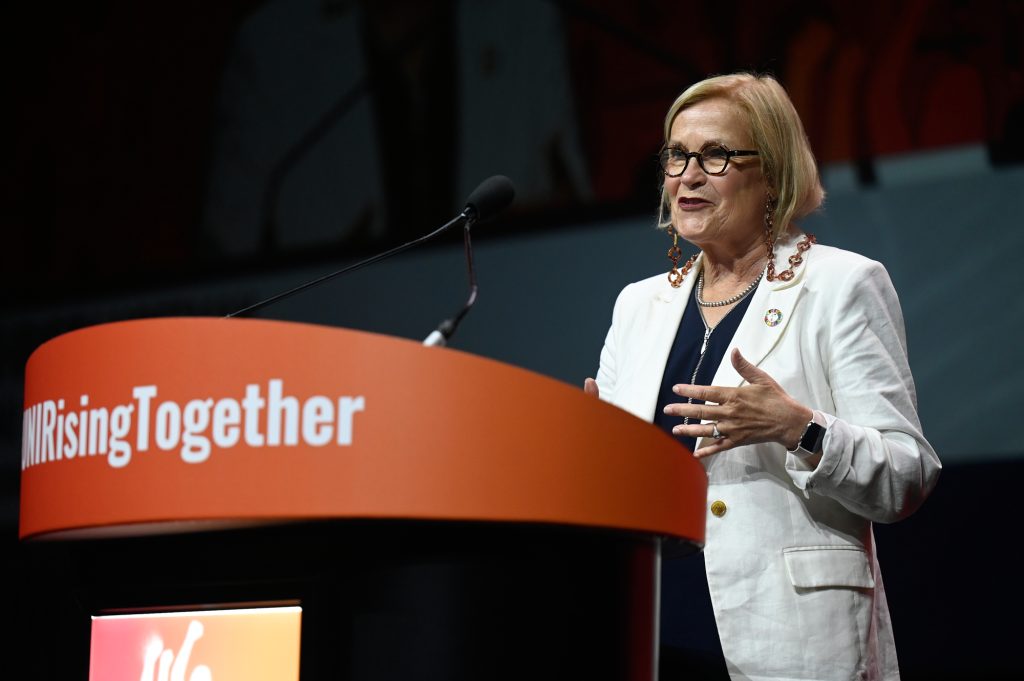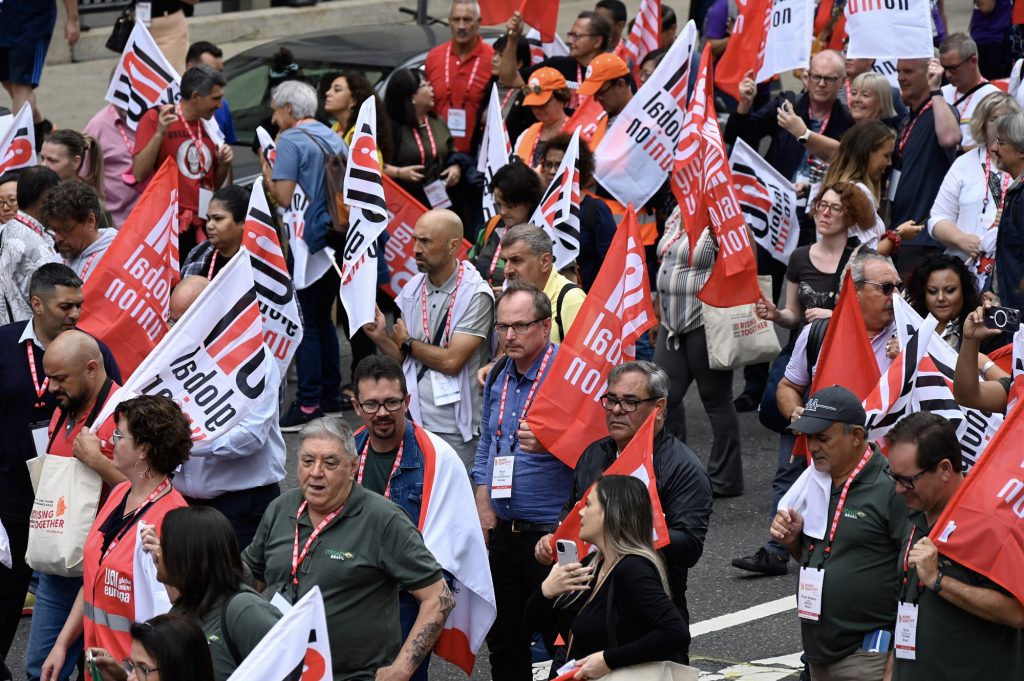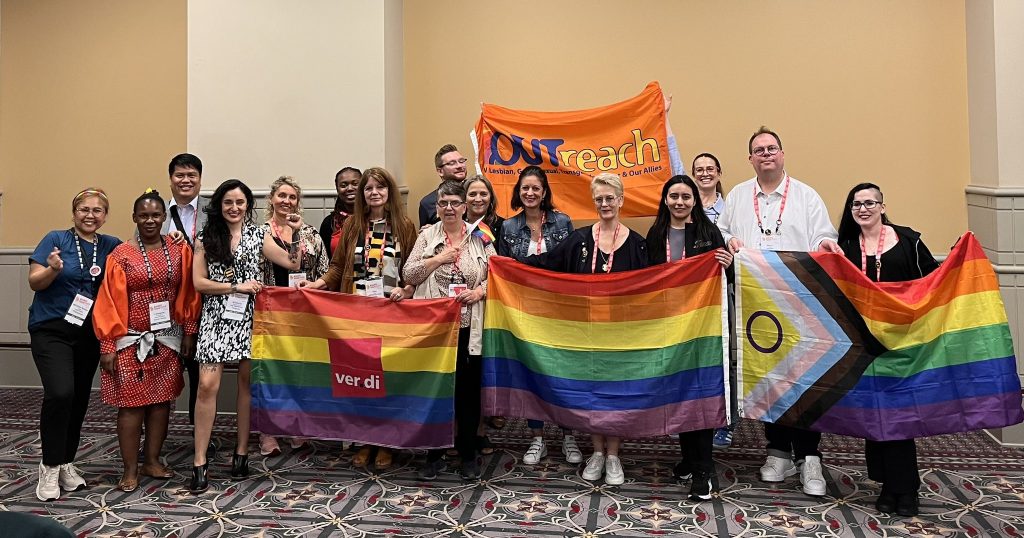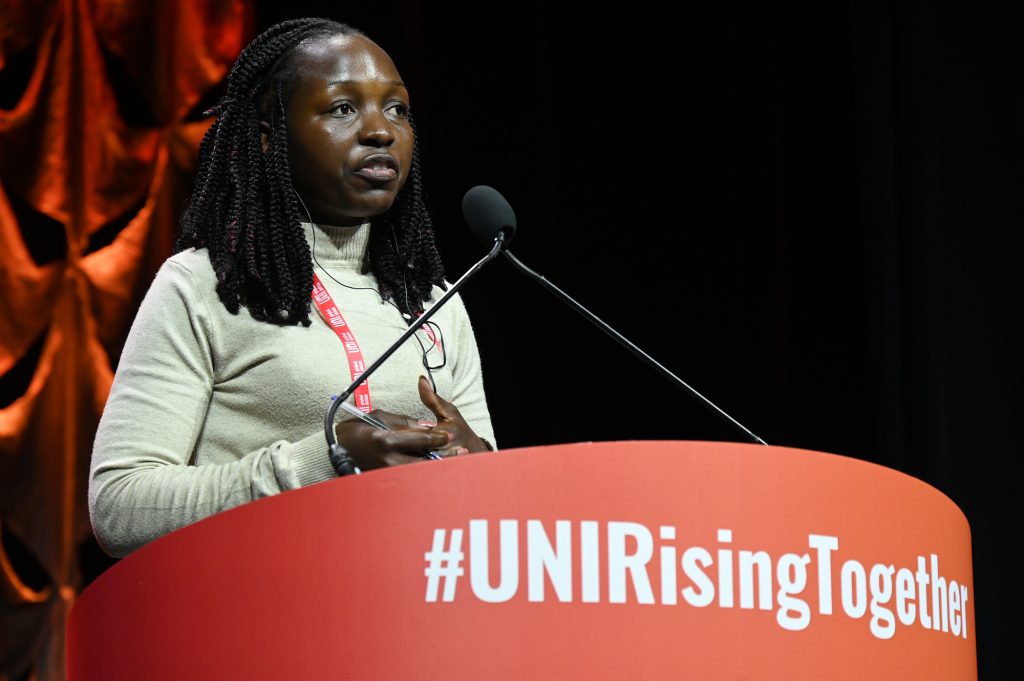UNI Global Union’s World Congress in Philadelphia concludes with renewed commitment to “globalize the struggle for democracy and justice”
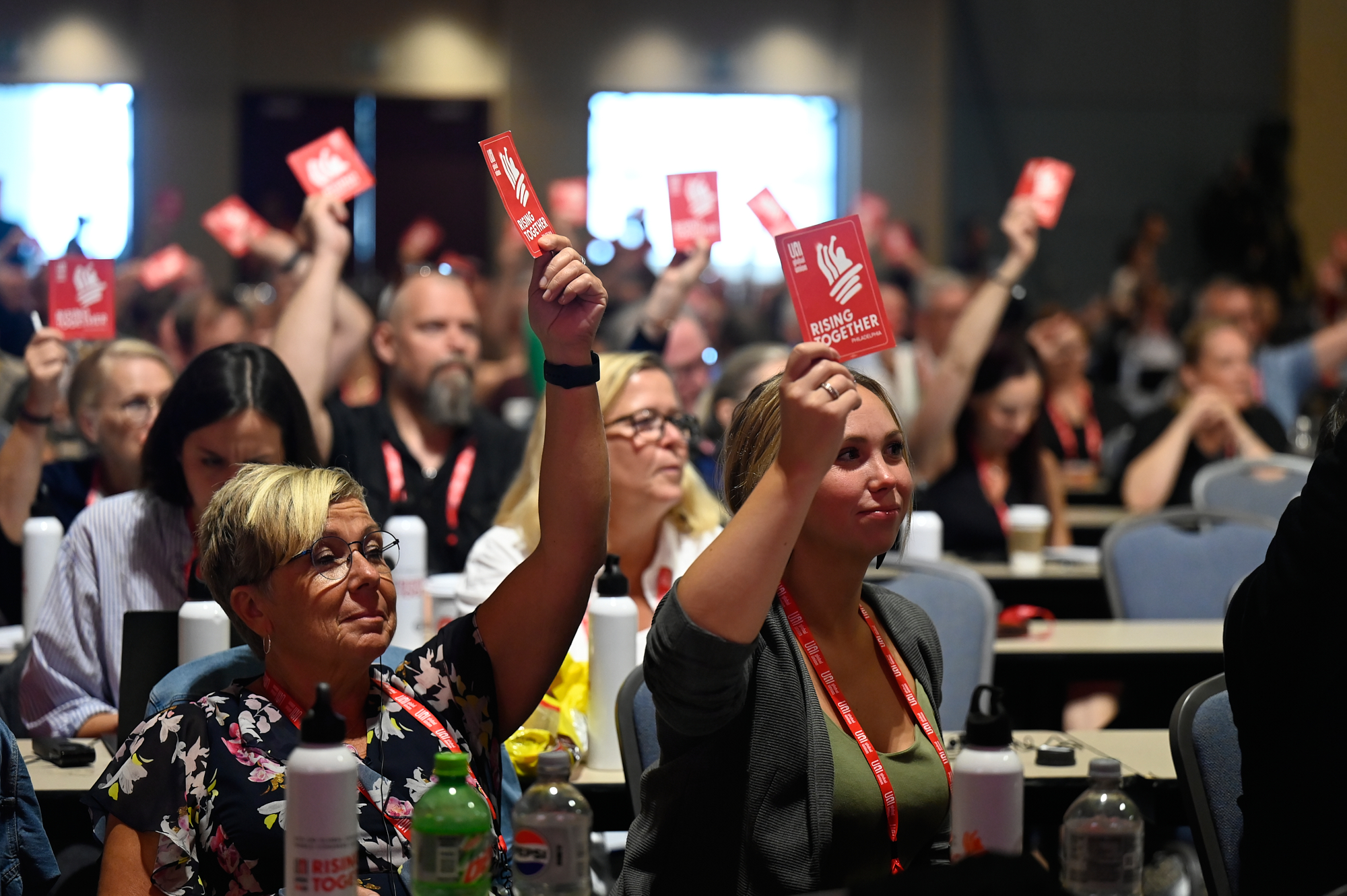
The UNI Global Union’s World Congress came to a close today in Philadelphia, marking the end of an invigorating week where unionists from 109 countries gathered to discuss pressing issues affecting workers globally. The energy and engagement throughout the Congress have been exemplary, culminating in the re-election of Christy Hoffman as General Secretary and Gerard Dwyer as the new President of UNI.
During her acceptance speech, Hoffman spoke about the enormous challenges and opportunities facing unions around the world.
“This is an environment which requires ambition and strategy to translate what may be a fleeting moment into lasting change, and a leap forward in the coverage of bargaining. As we have heard again and again, we need worksite bargaining, but we also need more. We need sectoral bargaining. We need structures which enable unions to thrive, not eke by. We need unions for all, not for a narrow slice,” she said.
The first session of day three, Rising Together for Peace, Democracy and Human Rights, featured impassioned speeches and discussions led by activists, labour leaders and government officials. Edwin Palma Egea, Vice-Minister of Labour of Colombia, emphasized the need for global unity in trade unionism, stating, “Globalizing struggles for democracies and justice is a milestone for the trade union movement and UNI Global Union.”
Sister Khaing Zhar, Head of the Myanmar Confederation of Trade Unions, outlined the need for international solidarity in the fight against military rule in Myanmar, thanking UNI for its support.
Oksana Slobodiana, representing Ukraine’s healthcare union Be Like Nina, accepted the Freedom From Fear Award. The union has continued to organize and advocate for care workers in Ukraine in the face of war and pandemic.
“Our trade union work is very important now, when we are defending the fundamental rights of workers and human rights. And it will be no less important after the war to restore the rights we have lost and ensure fair working conditions for people,” she said.
Colombia labour leader Luis Fernando Rodriguez, of graphical and packaging union SINTRAPULCAR, also won a Freedom From Fear Award. Luis Fernando has remained despite harassment, threats and even an assassination attempt.
Across the board, from Sofía Espinosa’s call for peace and democracy to Mylene Cabalona‘s depiction of life as a call centre worker in the Philippines, the Congress became a platform to voice varied yet interconnected struggles.
“Working in a call centre in the Philippines is really, really tough. We have to mostly work at night, most workers are sleep deprived. When a customer calls in, they aren’t calling to say they’re happy but because they have a problem or emergency. Their frustration is on the workers thousands of miles away who are sleep deprived. Most workers earn less than US$300 a month. So many call centre workers can’t support their families and are living in poverty. These companies could pay more if they wanted to. Working in customer service is really hard and we’re poorly paid, Mylene Cabalona, the president of BIEN in the Philippine stated.
Mylene’s intervention was part of a panel on corporate accountability. During the discussion, Diego Velasco from Colombia highlighted the mental health strain on content moderators who keep the internet safe, an often-overlooked issue. Lucia Trenor from Spain echoed the sentiment of solidarity, emphasizing that workers face many of the same issues regardless of the country they’re in.
During a roundtable about the success of the International Accord, Alke Boessiger, UNI Global Union Deputy General Secretary, outlined UNI’s commitment to human rights due diligence for companies: “UNI is committed to changing this through promoting mandatory human rights due diligence for companies, enforceable OECD Guidelines, a global treaty on supply chain justice, an ILO Convention on the supply chain, and trade agreements linked to respect for human rights.
“But alongside our work to change the rules, we must use the tools we have. One key part of our approach to corporate accountability is to negotiate agreements with global companies, through which we secure rights that go beyond local law and in particular the rights to organize and bargain.”
Amin Haque, General Secretary, Bangladeshi National Garment Workers Federation, lauded the International Accord for Fire Safety as a great achievement of the labour movement: “It is one of the biggest achievements in the history of the global trade union movement – 200 multinational companies in the garment and textile industry signed this legally binding achievement,” he said. “We need jobs in the Global South, but we need jobs with dignity, a fair wage and safe working conditions.”
The work of the International Accord is not done yet. Atle Høie, General Secretary of IndustriALL Global Union looks to expand its reach. “We must develop a worker safety programme in all the countries producing in the garment and textile sector. We can’t have people hurting who make our clothes,” he said.
The demand to recommit the movement to take action on climate change resonated in the room as Ibrahim Mamadou of SYTS Senegal brought attention to the immediate need to address climate change, emphasizing its disproportionate effects on workers. “Climate change knows no borders, and its consequences are felt by workers across the globe,” he said.
Anit Singh, National Secretary, Fiji Bank & Finance Sector Employees Union said:”Fiji produces less than 0.006% of carbon emissions and yet the impact on Fiji and Oceania is extreme. Even if we got to zero, it would not change. For that reason, climate change is everybody’s business. It may require some lifestyle changes, but we must because there is no planet B.”
Jan Simpson from CUPW STTP in Canada spoke about her union is bargaining to protect postal workers against climate change but also to green their jobs. Similarly, Marin Nyberg from Swedish commerce union Handels talked about how union members can make a difference by talking about reducing, reusing, and repairing rather than over-consuming.
UNI Youth President, Lucimara Malaquias brought attention to the issues that affect the youth in the workplace: “Young workers around the world are already twice as likely as adult workers to live in extreme poverty, and in the next decade, one billion young people will enter the labor market. With 90% of young people coming from developing countries. These workers will face a future of irregular, precarious and informal employment, with lack of opportunities, decent work, and livable wages.”
The congress concluded with the unanimous feeling that the fight for workers’ rights, democratic values, and social justice is universal. The event served as a powerful reminder of the impact collective action can have on individual lives around the globe, ending with a pledge for sustained solidarity and action.
As Luiz Inácio Lula da Silva, President of Brazil reminded the crowd in a letter to the Congress read by Juvandia Moreira Leite from Brazilian union, CONTRAF-CUT: “We have the same language: the language of the worker. It expresses the struggle of the oppressed. And it sings songs of equality and dreams of a dignified life and a better future!”
